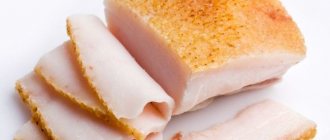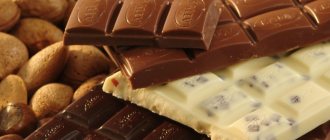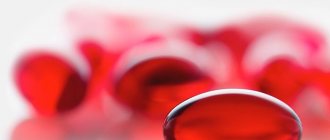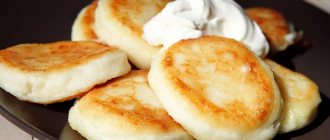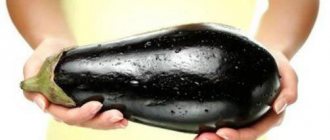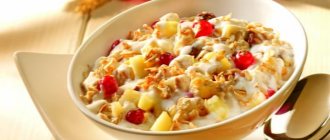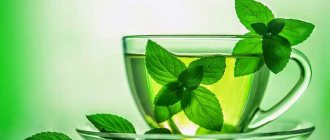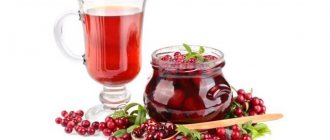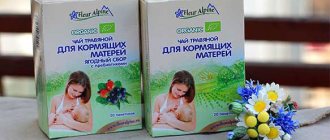The birth of a baby is a miracle. A caring mother knows that breastfeeding is the best nutrition for a newborn, and no dry formula can replace it. In order for the child to grow and develop, the mother’s diet must be balanced, fortified, and not very rich. After childbirth, the mother’s body is weakened; to restore strength and energy, it is necessary that the diet contains all useful and mineral substances, as well as protein and plenty of fluids. What foods are not allowed for breastfeeding women and why, is it possible to drink alcohol, when to feed the baby, if you do take a sip of alcohol - we will answer these questions.
What not to do while breastfeeding?
Despite such indications for the mother, there are still limitations in the mother's diet, especially in the first months of breastfeeding. Why should nursing mothers not eat fried foods? The answer to this question is simple: the baby’s digestive system is not yet properly adjusted, the intestines are not populated with bifidobacteria, so if fried foods enter the mother’s body, the child’s body will react with pain, bloating, and intestinal colic. What not to eat during lactation: mother needs to give up salted and pickled vegetables, and anything that may contain vinegar, smoked foods, flour, sweets, alcohol, citrus fruits, honey, whole milk.
Of course, breastfeeding women are strictly prohibited from drinking alcohol, even sipping wine or live beer, as many say. Alcohol with milk enters the child’s body, thereby affecting his physical and mental development.
Why can't breastfeeding eat red?
Vegetables, fruits and berries that are red or have red skin can cause an allergic rash in a child; for the same reason, you should not eat honey, citrus fruits, or a lot of sweets.
Why can't a nursing mother have sweets?
Because empty carbohydrates and high blood sugar are contraindicated for the baby and mother. Also, a large amount of sweets eaten by the mother can affect the baby’s face with a rash of white pimples, which go away on their own after 4-5 days, but still show that the newborn’s body is not able to cope with such an amount of carbohydrates.
Why should breastfeeding women not have milk?
A large amount of milk drunk by the mother can cause intestinal colic in the child; it is especially worth giving up whole milk, as it is too fatty. The amount of milk added to the mother's food during the day should not exceed 150 grams. Kefir should be included in the diet, as it restores the strength of the mother’s body, improves intestinal function for both mother and child.
Why should breastfeeding women not eat garlic?
There is an opinion that eaten garlic, like onions, gets into milk and spoils its taste.
Why can't cucumbers be given to nursing mothers?
Cucumbers should not be included in the diet of a nursing mother until ground ones appear. Greenhouse cucumbers, which are sold in supermarkets, may contain pesticides and nitrates, which can harm a child’s fragile body.
When should you not breastfeed?
Doctors prohibit breastfeeding a child after drinking alcohol. How long should you feed after drinking alcohol? You cannot feed until the mother is completely sober, although the critical concentration of alcohol in the milk will be 30 minutes after drinking. Only after the liver has processed the alcohol, after about two hours, can the baby be put to the breast.
What foods should breastfeeding mothers not eat?
Unnatural and too fatty foods, such as:
While breastfeeding, try to limit your diet to purchased ready-made foods, try to eat only what you have prepared yourself, which is fresh and nutritious, and then the baby will be full and satisfied.
During the period of breastfeeding, a nursing mother is doubly responsible for the health of her baby. After all, her diet and lifestyle affect the quality of milk, which is the main food for her child. Let's look at the main negative factors affecting breastfeeding.
What is contraindicated for a nursing mother during breastfeeding?
To begin with, I would like to note bad habits that are strictly prohibited during lactation.
- 1. Addiction to alcoholic beverages
Alcohol consumed by the mother easily enters the mammary glands in high concentrations. The baby also receives this poison along with breast milk, which creates a huge load on the baby’s still insufficiently developed liver. Alcohol is eliminated very slowly from the baby's body and can cause serious intoxication. When a mother drinks any alcohol (beer, wine, etc.), her lactation decreases. ...
- 2. Smoking
Nicotine penetrates milk almost instantly after smoking a cigarette. It has a high toxic effect on the baby's organs. ...
- 3. Poor body hygiene
If a nursing mother neglects water procedures, especially with regard to the mammary glands, then the accumulated dirt and sweat create comfortable conditions for the proliferation of pathogenic bacteria. A child who sucks at the breast may develop ulcers, stomatitis, and other inflammatory processes in the mouth. When breastfeeding, you should not use perfumes or deodorants with strong fragrances, as they clog skin pores, and the intense smell provokes the baby to refuse breastfeeding.
- 4. Increased nervousness and stress
A mother who is breastfeeding should avoid emotional shocks, overstrain, and nervous shock, because all this leads to a decrease in lactation. And with constant oppression and an unfavorable situation in the family, the milk in the breast may disappear altogether.
- 5. You are absolutely not allowed to use drugs!
What a nursing mother should not eat
- legumes (peas, beans, lentils): they cause bloating in babies and provoke severe;
- spicy, bitter, overly aromatic plants and vegetables (capsicum, garlic, onions), even in dishes they make the taste of milk unpleasant and the child may refuse to breastfeed;
- sweet confectionery and chocolate (buns, muffins, cakes, pastries), they cause fermentation in the tummy, which causes pain to the baby with an immature intestinal tract;
- citrus fruits (oranges, tangerines, lemons) can cause a severe allergic reaction in a baby;
- red berries, fruits and vegetables (red apples, watermelon, strawberries, tomatoes), due to their beta-carotene content, can cause allergies, peeling skin, and rashes;
- seafood (squid, shrimp, mussels) is also a fairly strong allergen, so when breastfeeding it is better not to take risks and not eat them;
- drinks: sweet carbonated lemonades (bloating), tea and coffee (increased excitability), alcoholic cocktails (poisoning and intoxication), unboiled milk (pathogenic bacteria) - all this, when breastfeeding, can cause anxiety and discomfort to the baby.
But there is an even more important list of what you absolutely cannot eat while breastfeeding.
These products should not be in the diet of a nursing mother until the end of the breastfeeding period; they can cause serious harm to the baby:
- Mushrooms (can cause severe poisoning);
- Smoked meats and sausages (high content of fat and artificial additives);
- Ready-made mayonnaise sauce (powdered milk, vinegar);
- Chili pepper (can burn the baby's larynx even through milk);
- Pickled pickles (danger of pathogenic bacteria);
- Fast food products, fast food.
Take your diet seriously while breastfeeding. Let your baby receive maximum benefits from milk, then his health will be strong, to the delight of young parents.
Don't be so quick to give up breastfeeding... because of the strict nursing diet your pediatrician insists on. Or maybe it's not so scary? Think about how a child will “try” everything, even through smells, if the mother, in a semi-fainting state, only eats porridge with water? But in all countries except ours, we have never heard of any special diet for breastfeeding. What to do if the sight of baked goods makes your mouth water until your knees tremble?
Prohibited Products
The list of prohibited foods for a nursing mother’s menu is quite impressive. However, a woman should not be discouraged. After all, if you think about it and weigh what is more important for us: a tasty meal or the health of the child for many years. The answer will be unequivocal - the health of the child. Therefore, nursing mothers should avoid the following foods during breastfeeding.
Table: prohibited foods on the menu of a nursing woman
Any “chemistry” on a nursing woman’s menu can have a negative impact on the baby in the form of allergies and deterioration in health
| 3 | Pickles, preserves, smoked meats | Almost all recipes contain a lot of salt, spices and seasonings, which adversely affect the baby’s health and can cause not only allergies, but also other diseases of the gastrointestinal tract |
| 4 | Red foods: tomatoes, red bell peppers, red apples, pomegranate, apples (strawberries, raspberries, cranberries, etc.). | Due to the red pigment found in these products, which is a strong allergen, eating red foods is prohibited |
| 5 | High fat dairy products and whole milk | The proteins that make up whole milk are practically not broken down by the baby’s immature digestive system, and fatty dairy products increase cholesterol levels and cause constipation. |
| 6 | Chocolate, candies and sweets | Sweets contribute to the appearance of colic and diathesis in the baby. Chocolate contains caffeine, which causes anxiety in children. The baby becomes excitable and sleeps poorly. |
| 7 | Onions, garlic, seasonings and spices | The essential oils contained in onion and garlic affect the taste of breast milk, as well as seasonings and spices. This can cause the baby to refuse the breast. |
| 8 | Butter pastries | Yeast in the dough provokes increased gas formation in the baby, tummy pain, bowel disorders and allergies. |
| 9 | Grapes, legumes, cabbage, cucumbers | Causes increased gas formation in the baby |
The main thing is to eat only fresh and natural products.
Based on my own experience, I can say that all requirements for strict intake of products are purely advisory in nature. After all, every person’s body is individual. Each woman should choose her own rational menu that suits her and her baby. My first child was born in April and was two months old during strawberry season. Although the berry is red, I tried one at a time. We had no allergies, and we stocked up on the vitamins contained in strawberries for the year. The same thing happened with tomatoes. At the time of their maturation, the child was four months old. Naturally, I started trying only our homemade ones to eliminate the addition of fertilizers and chemicals. We don't have any allergies to tomatoes either. Therefore, if you are confident in the quality, from the second month you can try both beets and legumes, but a little at a time. The main thing is not to get carried away.
Strictly prohibited foods, powerful allergens for babies
Alcoholic drinks and cigarettes, which contain dangerous carcinogens and toxins, are strictly prohibited during breastfeeding. These harmful substances easily enter breast milk from the mother's blood. And if a one-time incident, drinking a glass of wine or smoking a cigarette, does not cause a serious blow to the child’s health, then regular abuse of alcohol or cigarettes will negatively affect the child’s mental and physical development.
Also strictly prohibited are fast food, chips, salted nuts and popcorn. These products are high in calories and calories, which will definitely do more harm than good to the health of the mother and baby.
This also includes sweet carbonated drinks, as they contain a high content of sugar and dyes. Therefore, there is a high probability that they will cause allergies and colic in the baby.
Based on their ability to cause food allergies in a child, all products can be divided into three groups:
- High risk of developing allergic reactions:
- milk, eggs;
- fish, seafood;
- wheat, nuts, honey, mushrooms, soybeans;
- citrus fruits, strawberries, wild strawberries, raspberries.
- Average risk of developing allergic reactions:
- beets, carrots;
- sugar;
- apricots, cherries;
- dairy products.
- Low risk of developing allergic reactions:
- cauliflower and white cabbage, broccoli, zucchini, squash, cucumbers, corn;
- millet, pearl barley;
- rabbit meat, lean pork, turkey, lean lamb;
- green varieties of pears and apples, garden herbs, white and red currants, gooseberries.
Conditionally permitted products
The list of permitted products for a nursing mother’s menu directly depends on the age of the child. The most strict, in terms of choosing products for a nursing woman, is the first month. Then, gradually, the menu will be replenished with more and more new products, and by the sixth month, mother will enter her normal eating schedule.
If a woman led a correct and healthy lifestyle before pregnancy and childbirth, then the nursing diet will not be a burden.
Proper diets are beneficial for both mother and baby: by eating healthy food, a woman manages to lose weight, and the child, in turn, develops normally.
Oksana, 33 years old, nutritionist
https://happy-womens.com/dieta-pri-grudnom-vskarmlivanii.html
Table: allowed products on the menu of a nursing woman
| 1 | Porridges from whole grains: buckwheat, oatmeal, pearl barley, barley, wheat, corn | The whole structure of the grain retains absolutely all microelements, vitamins and nutrients. Peeled cereal is only a hard fruit, which, after processing, loses a huge amount of these nutritional fibers, fats and antioxidant elements. Together with the removed shell, it loses fiber, a significant part of vitamins and minerals, and with the germ, phytonutrients (plant substances - lignin, phytic acid and antioxidants). These cereals rarely cause allergies. Rice porridge is not recommended, as it can cause hardening. Porridge is cooked in water, since milk is a strong allergen. |
| 2 | Lean meat: rabbit, veal, turkey | Meat is rich in protein, which is so necessary to restore the mother’s strength after childbirth. It also strengthens the immune system, saturates the body with energy and vitamins. |
| 3 | Fish: pollock, cod, pike perch, pike | Fish is also rich in protein, and unlike meat, it is also easily digestible. Contains fats in a special form and minerals: iodine, selenium, phosphorus and calcium |
| 4 | Low-fat fermented milk products: kefir, yogurt, fermented baked milk, cottage cheese | The main thing is that it saturates the body with calcium, which is very necessary for the growing body of a child and a nursing mother, and also improves digestion. Strengthens the immune system, resists infections, viruses and fungi. It has a positive effect on lactation - it improves the composition and increases the volume of milk. It is preferable to consume homemade fermented milk products, since store-bought ones contain a large amount of dyes and food additives |
| 5 | Soups: meat and vegetable | Very healthy dishes. Firstly, the vegetables in soups are boiled, and secondly, an additional volume of liquid, which is so necessary for a nursing woman |
| 6 | Vegetables: potatoes, cauliflower, zucchini | It is not recommended for a nursing mother to consume raw vegetables, especially in the first months of breastfeeding. We eat boiled or steamed |
| 7 | Fruits: bananas, apples and dried fruits: prunes and dried apricots | In the first months, especially the first week, give preference to baked fruits, and also pay attention to the color: green - you can eat, yellow - with caution, red - prohibited. Prunes and dried apricots help fight constipation, which often plagues women who have given birth. |
| 8 | Dried black bread, dry biscuits, crackers | It is not recommended to eat freshly baked bread and pastries, as they can cause flatulence, heaviness and colic in mother and baby. Yesterday or dried bread, when yeast activity has decreased, is very useful. Thanks to the complex carbohydrates contained in bread, mothers quickly regain their strength after childbirth. When choosing crackers and cookies for a nursing mother, you need to pay attention to the composition. For mothers, crackers and cookies without seasonings and additives are suitable. A wonderful choice is white bread croutons and biscuits. |
| 9 | Drinks: compotes from dried fruits or apples, special herbal teas for nursing mothers, weak tea, boiled water | During lactation, a woman should drink a lot (2.5 liters per day). You should not drink whole milk (it causes increased gas formation), carbonated drinks, lemonades and yoghurts with fruit and berry fillings (can cause allergies), coffee and strong tea (increase the child’s excitability), alcohol. Industrially produced compotes and juices are not recommended - they contain many preservatives and other harmful artificial additives. |
Healthy eating pyramid for a nursing woman
We have figured out the foods that a nursing mother can eat. Now the important question is preparation. We bought fresh and high-quality products, so that they bring benefits and not harm, they must be prepared correctly.
The best ways to prepare food for a nursing woman are:
- stewing;
- cooking;
- baking;
- steaming.
Breastfeeding women are prohibited from eating fried foods.
Frying is the most dangerous way of preparing food not only for the menu of nursing women, but for all people.
Food cooked in a frying pan with a lot of oil is always very fatty
Reasons to avoid fried foods:
- Fatty food. Excess fat leads to serious problems: Indigestion.
- Atherosclerosis.
- Vascular diseases.
- Heart problems.
- Risk of developing cancer.
- Cancer development.
- Atherosclerosis.
Another healthy eating tip: minimal cooking. With each reheating, food loses a significant proportion of biologically active substances.
Konopatskaya Tatiana
Women's magazine "Beautiful and Successful"
Spices and hot spices such as ginger, garlic, cinnamon, black pepper, chili pepper, curry are very difficult for the baby’s digestive system. They can cause more than just diarrhea and vomiting. Such breast milk can even burn the baby’s delicate stomach and cause intoxication. Therefore, until the baby is 3 months old, all hot spices and seasonings are strictly contraindicated for the mother. And in the future, when breastfeeding, you should not get carried away with spices and seasonings, since due to poor nutrition of the mother, children suffer from colic and severe abdominal pain.
Most women after childbirth experience a strong desire for sweets, and this is not without reason. A woman’s body spends a lot of energy producing milk, and sweets help restore the level of carbohydrates, which are responsible for a surge of strength, energy and improved emotional well-being. However, you should not get carried away with sweets. After all, this is a colossal load on the baby’s body, on all its organs and systems. Sweets can cause allergies, colic, bloating, increased gas production and other digestive problems in your baby. And if you consider that when making sweets, manufacturers use preservatives, dyes and food additives, then it becomes immediately clear that there is no point in talking about any benefits of sweets in the menu of a nursing mother.
But allergies and digestive problems in a baby are not the only problems due to which it is better for a nursing woman to give up sweets. Sweets are also harmful to a woman’s health. They can cause the following diseases:
- risk of developing obesity;
- caries;
- diabetes.
But don't be upset. Sweets, chocolates, muffins and other store-bought sweets just need to be replaced with homemade baked goods. And instead of sweets and chocolate, eat dried fruits. Dried apricots, prunes, dried pears or apples are suitable.
In the menu of a nursing woman, sweets and chocolate should be replaced with dried fruits. They will benefit the health of the baby's mother
Store-bought baked goods can be replaced with home-cooked dishes. This way we can not only diversify the menu of a nursing mother, but also add healthy and tasty products. Please note that yeast dough can cause colic in newborns and bloating. Therefore, during breastfeeding, nursing women exclude yeast dough products from their diet.
Yeast-free cookies are baked goods that are allowed for a nursing mother during breastfeeding.
When preparing homemade baked goods, you can use this simple recipe.
Dough recipe for savory dishes
Products needed to prepare dough for savory dishes:
- two glasses of kefir;
- two glasses of flour;
- half a teaspoon of salt;
- half a teaspoon of soda;
- two tablespoons of sugar.
Dough preparation process:
- In a large bowl, mix kefir, salt, soda and sugar.
- Gradually add flour so that no lumps form.
- Stir until smooth.
- Leave for 15 minutes until bubbles form.
The finished dough can be used to make pizza or pie. The filling can be anything, but only from products allowed for a nursing woman.
How to eat for a nursing mother?
A woman's diet during breastfeeding should first of all be complete and meet the principles of healthy eating. A nursing mother needs to receive proteins, carbohydrates, fats, microelements and vitamins, and fiber.
Moreover, we should not forget that the process of milk production requires 500–600 kcal in addition to those that a woman received from food before pregnancy. And everything that is eaten “for two” will settle as fat deposits on the waist and in other “interesting” places.
For comparison, the WHO textbook offers the following set of products as an additional volume to the usual food:
- 60g of rice (carbohydrates) - 240 kcal, which is about a handful;
- 30g beans (protein) - 120 kcal, which is half a handful;
- 1 handful of vegetables (vitamins, microelements, fiber);
- half a banana (vitamins, microelements, fiber, carbohydrates) - 90 kcal;
- 1 tsp vegetable oil (fats) - 50 kcal.
As you can see, milk production requires nothing at all! As for beans and other products, they are given as an example. Some children may become bloated after a nursing mother tries dishes that contain legumes in their recipes. But there are no products in nature that are 100% likely to cause undesirable reactions in all infants without exception.
Each child is individual, and it is not a fact that yours will somehow react negatively to beans, cabbage, cucumbers or anything else.
In fact, a nursing mother should not starve. This will have little effect on the volume and usefulness of milk. But due to the stress in which the body is in the process of fasting and refusing “goodies,” the production of the hormone oxytocin decreases. And oxytocin is responsible for the secretion of milk from the mammary glands. The less oxytocin, the more difficult it is for the child to receive the treasured mother's milk. So recipes for breastfeeding dishes should be tasty and healthy, delivering gastronomic pleasure to the nursing mother and not harming the baby.
Now about the harm to the child. As mentioned earlier, there are no foods that are absolutely contraindicated while breastfeeding. But according to the observations of nursing mothers, eating some of them can cause: 1) bloating (flatulence) and 2) food allergies. Again, everything is individual. If you are very scared for your child, then here is a list of foods that most often cause bloating:
- whole cow's milk;
- chicken, eggs;
- White cabbage;
- black bread;
- sweets and baked goods made with yeast dough.
Proper nutrition for young mothers after childbirth, diet or pleasure
Allergies are a little more complicated. If you have allergies in your family, then in the first three months of the child’s life it is better to exclude foods traditionally considered allergens from recipes or replace them with something similar. Then try introducing it gradually. But food allergies also occur in children whose pedigree does not include them. This is a so-called transient allergy, which goes away as the immune and digestive systems grow and mature.
So food allergies can be seen in any child to any product. What to do in this case? Identify the allergen and temporarily limit its consumption. But without fanaticism, sitting down to just buckwheat or potatoes. It is very useful to keep a diary, writing down everything that goes into your mouth during the day.
Products that make up recipes for dishes that you want to taste until your hands tremble must be tried separately. For example, if it’s pizza with tomatoes (what would you do without them!), then we take half a tomato, eat it in the morning, so as not to miss anything interesting in the child’s life, and watch the reaction. If all is well, then the next morning you can eat a whole tomato, then two.
The next suspicious product is introduced no earlier than 5–7 days later.
If the baby is covered or swollen, or something else unusual happens that in your opinion is related to food, then the nursing mother can take sorbents (charcoal, smecta, polysorb, polyphepan, etc.) and continue breastfeeding. Avoid the product for the time being.
Often the problem is solved not by complete elimination, but by changing the manufacturer. The fact is that to increase shelf life, manufacturers use various chemical additives that easily penetrate into breast milk. Even hypoallergenic zucchini out of season (for example, in winter) and buckwheat are no exception. And you can get an allergic reaction not to the product itself, but to these additives.
Baking - is it possible while breastfeeding?
Since we are talking about baking, recipes for its preparation must comply with the principles of a healthy and balanced diet. That is, for the peace of mind of nursing mothers, baked goods should be balanced in composition. It is desirable that there are no potential allergens, “foaming agents”, and especially chemical substances - preservatives, dyes, flavors, stabilizers, flavor enhancers, etc. and so on.
The dough should be yeast-free, made from unbleached flour, without eggs, milk and not cloyingly sweet.
We get carbohydrates from the dough. Where can I get proteins, fats, fiber, minerals and vitamins? By making pies or baked pies with a variety of fillings! And don’t forget that baking is a high-calorie product, so we don’t overuse pies!
Is it possible for a nursing mother to eat pilaf?
Well, as for whether it’s even possible for a nursing mother to bake, sometimes it’s better to eat a piece of the most harmful, coveted cake than to eat your nerves! Remember, strictly denying yourself everything = bad mood = decreased oxytocin levels = difficulties with milk flow.
Now a little about flour for dough. Premium wheat flour is ideal for baking recipes. The dough it makes is airy and rises easily. But everything valuable in the grain is destroyed. It consists of a starchy substance surrounding the wheat kernel, from which it draws energy for growth. Microelements, fats, proteins, vitamins have been removed from it and it contains only carbohydrates.
Manufacturers enrich flour with synthetic additives, which, unlike the natural components of grain, are poorly absorbed by the digestive system. But if you can somehow combat this by diversifying your diet with the missing substances, then there is no escape from those chemical additives that are added to flour for bleaching.
Most often, the flour “improver” used for whitening is benzoyl peroxide E928, which is also used in medicine as part of an ointment for the treatment of acne and other drugs.
Medicines containing this component are not prescribed to pregnant women, nursing mothers and children under 12 years of age. If it is necessary to use the drug, breastfeeding is interrupted. Benzoyl peroxide easily passes into breast milk and can cause allergic reactions. So draw your own conclusions.
As a less harmful option for dough recipes, it is better to use unsightly gray flour of the 1st grade. Whole grain flour, healthy and containing all the valuable parts of the grain, is almost unsuitable for these purposes. Products made from it are heavy, rise poorly and, due to high humidity, appear raw and unbaked. Not for everyone.
Why is yeast dough not recommended for a nursing mother? Instant yeast, when it enters the human intestine, provides a breeding ground for local bad bacteria. As a result, their number increases and beneficial intestinal flora is suppressed. The absorption of B vitamins, which are produced by suppressed beneficial bacteria, deteriorates.
Externally, this process is reflected by bloating, seething in the abdomen, and increased gas formation. The balance of microflora is disrupted, and with excessive consumption of “airy” buns and other baked goods, dysbacteriosis develops and consequences arise - stool disorders, deterioration of metabolism, decreased immunity, etc.
Which baked goods do you prefer: homemade or store-bought?
On the shelves you can find a wide variety of all kinds of buns, pies, and cheesecakes. They look and smell great. Sometimes there is no doubt about the freshness of the products. But is it worth buying them for a nursing woman’s diet?
It is advisable to avoid store-bought baked goods during breastfeeding. Yes, it is tasty, but often it contains ingredients that can harm mother and baby. Preservatives, dyes, flavors, yeast, large amounts of sugar, low-quality vegetable fats - all this can cause allergic reactions and intestinal discomfort in infants.
The only thing you can buy in the store is dryers, oatmeal or biscuits. This product is relatively safe. But you need to carefully look at the expiration dates and read the ingredients so that there are no suspicious components.
To be as sure as possible that the quality of the baked goods is high, the correct ingredients are used, and the product is fresh, it is better to cook at home. Yes, it will take time, but the result is worth the effort.
Baking Dough Recipes
For pies, pies, pizza, and much more, you can use an analogue of yeast-free dough - kefir dough. This is how it is prepared.
For pies
- 2–2.5 cup flour
- 1 glass of kefir
- 2 tbsp. spoons of vegetable oil
- 2 teaspoons sugar
- 0.5 tsp salt
- 2/3 teaspoon soda
Heat the kefir slightly without overheating. Add sugar, salt, pour in vegetable oil and mix well.
Add flour gradually, in small portions, to form an elastic dough. If you make it tight, then there will be no air bubbles in it, which will significantly spoil it.
Can a nursing mother eat apples and how does this affect the baby?
Divide the soda into three parts.
Sprinkle the table with flour and roll out the resulting dough (elastic!) to a thickness of 1 cm. Sprinkle the rolled out dough with baking soda (one third) as evenly as possible.
Fold the layer sprinkled with soda in three layers: first 1/3 from one edge, then from the other edge. And also again in three layers. Roll out the resulting bundle again into the same 1 cm layer, sprinkle the second third with soda and fold it in the same way. Roll out, repeat the folding and rolling process again.
In total it turns out - roll out three times, sprinkle with soda three times, fold three times. Run three times to see how the baby is doing. With each subsequent time, the dough should become more porous and fluffier.
Cover the dough and leave it warm to rise for 40 minutes.
After this time, you can make pies. To make them more fluffy and airy, try not to knead the dough too much.
For pies and pizza
For larger baked goods - pies and pizza, nursing mothers can use recipes for jellied dough made with kefir, without eggs or yeast. This dough is prepared very quickly and couldn’t be simpler. And so that it does not seem raw, the baking form can be lightly sprinkled with starch before filling. This is how it is prepared.
A strict diet during breastfeeding makes mothers dream of delicious food.
Sometimes you just want to break the ban a little and eat a little “harmful”.
Is it possible for a nursing mother to eat fried food and how to prepare food correctly so as not to harm the baby?
Can a nursing mother eat fried foods and what are the dangers?
The harm of fried food lies in its severity. A large amount of fat, heavily fried crusts - all this leads to the fact that the stomach will cope with its work for a long time. After such a meal, there is a feeling of heaviness in the stomach, heartburn appears, and the woman becomes lethargic.
When oil overheats, it becomes very heavy. This fat easily passes into mother's milk. If there are no disturbed processes in her body, then it will not reach the child directly, but thanks to the fatty acids contained in milk, it will be quickly absorbed. However, the composition of the milk will become an order of magnitude fattier, which will not have the best effect on the child’s condition. This will cause severe colic in him.
If before giving birth one of the woman’s favorite delicacies were fried pies, then during breastfeeding you will have to forget about them. This is very heavy food. Firstly, because it is flour, and this causes a load on the bile system in a woman and constipation in a baby. Secondly, the flour product quickly absorbs oil, which makes the mixture doubly harmful, disrupting liver function in a woman and colic in a baby.
Can nursing mothers eat crispy fried potatoes? Breastfeeding experts do not recommend it. This dish will cause your baby to experience bloating and severe colic. However, you can eat fried potatoes prepared using a gentle method and in very limited quantities, but first you need to introduce them in boiled form.
Why is it harmful?
Fried food during breastfeeding and beyond is harmful because it contains a huge amount of carcinogens and other harmful substances.
The harm of the dish lies in the following factors:
- If starch is present in products during heat treatment, it becomes oversaturated. Penetrating into the body, starch practically does not dissolve, being deposited on the intestinal walls - this leads to constipation.
- Heat processing destroys beneficial enzymes, so the food becomes “useless.”
- High temperatures destroy not only beneficial enzymes, but also vitamins. First of all, they talk about vitamins B, A, K and C - and they are needed more than ever by the body of a young mother who is breastfeeding her baby.
- Fried meat no longer contains cellular building material. For a young mother who is also feeding her baby, this is harmful - she begins to experience heartburn after eating such food, as well as belching and bloating - all these are signs of a lack of building material.
- When the oil is heated, the concentrates and carcinogens contained in the product are separated and penetrate into the mother's breast milk.
There are other factors that cause harm to such foods for women who are breastfeeding. As a result, it is better to avoid dishes cooked in vegetable or butter altogether.
Is it possible for a nursing mother to eat fried food: permitted foods
Fried food is one of the heaviest, and therefore it should be introduced into the diet of a nursing mother no earlier than 5-6 months after the birth of the child. If the slightest deviation in the baby’s well-being from the norm occurs (rash, redness, loose stools or constipation), you should stop introducing such dishes.
Nursing mothers are allowed to fry zucchini, bell peppers and apples in a frying pan. During the cooking process, you need to use a minimal amount of oil, literally to lubricate the pan. If you are using non-stick cookware, you do not need to add oil at all.
If a nursing mother goes on vacation in nature, that is, barbecue with everyone else will not work, as it is harmful for the baby. It can be replaced with charcoal-fried bread and potatoes.
You can and should eat turkey, chicken and white fish while breastfeeding. These products can be cooked in the oven. There is no need to add oil; use a baking sleeve or foil to avoid food burning.
Can a nursing mother eat fried food: how to cook such food
During breastfeeding, while the baby gets everything he needs from his mother's milk, it is very important to adhere to a proper healthy diet. Fried foods do not fall into this category. However, sometimes you can allow yourself to break the rule and eat a small portion. But in order for it not to affect the baby’s health, you need to prepare the food correctly.
It is better to use olive oil for frying, as it contains unsaturated fats, which makes it easy to digest. It is also allowed to fry in wheat germ vegetable oil. It is not only safe during breastfeeding, as it does not accumulate organic peroxide, but is also beneficial due to its high vitamin E content.
You should never use the same frying oil more than once. It is not just harmful, but also dangerous to the health of both mother and baby.
There is no need to cook the food until it turns golden brown. Although this is the most delicious for many, it is also the most harmful. It is this crust that is most harmful to health, and in order to process it, the stomach will be forced to work to the limit of its capabilities.
Harm to the baby
The harm caused by such food to a baby should be considered only on the carcinogens isolated from the oil - this is enough to stop eating such dishes. Thus, carcinogens that enter the body of the little ones significantly and quite quickly reduce immunity, and also provoke the development of cancerous tumors. The consequences of a woman eating fried foods while breastfeeding may be less significant, but no less significant. Foods fried in vegetable oil or butter become very fatty. Fat easily passes into breast milk because it is not digested in the woman’s body by the pancreas and liver. For a baby, fat becomes simply destructive - his liver and pancreas are formed only by the age of 3, so organ cells are destroyed at an early age.
This is important: The child should be protected from harmful foods - fatty, fried, smoked, spicy. It is also prohibited to consume cocoa and all types of chocolate before the age of 3 - the cells of internal organs are destroyed, and the liver, acting as a filter in the human body, becomes clogged, causing destruction.
How to cook fried potatoes
Is it possible for a breastfeeding woman to eat fried potatoes, since this is one of the most popular dishes that a woman craves during lactation? Many limit themselves for fear of harming the baby. However, if you prepare the dish correctly, you can treat yourself to it from time to time.
In order to cook the “correct” fried potatoes, you must follow several rules.
1. The tubers must be washed well, cut into desired pieces, filled with cold water and left for a while. Then change the water and hold it a little longer.
2. During frying, the oil must be diluted with clean water.
3. The dish is cooked only with the lid closed and stirred periodically so that the pieces do not burn.
4. Salt is added 5 minutes before the end of cooking.
5. It is advisable to add fresh parsley, dill and onion. Greens are good for both mother and baby, in addition, it will give the dish a special taste and aroma.
Can a nursing woman eat fried food? It’s possible, since fried food is not always fatty. This fact should be taken into account when preparing fried foods. For example, there will be a significant difference between a cheesecake fried in oil or the same cheesecake cooked in a thick-bottomed frying pan without adding oil. In the second case, the dish will not harm either mother or baby.
When preparing fried food, you should always remember that there should be a minimum of oil. It greatly increases the fat content of milk, which leads to the fact that the baby eats “fore milk” without reaching the “hind milk”, which contains all the useful elements.
Breastfeeding involves maintaining proper nutrition, which contributes to the normal growth and development of the baby. Healthy food helps internal organs develop better. At the same time, the mother’s diet is not limited by strict prohibitions. If you really want a fried dish, then sometimes you can afford it if you follow all the rules for preparing it. In this case, the mother will be well-fed and satisfied, and the infant’s immature digestive system will remain intact.
Everyone knows that fried food is not healthy for the body; all diets exclude it. A woman after childbirth needs a special diet; it must be healthy. Fried food can negatively affect a child's health because it is heavy on the stomach.
If you really want to
It’s already clear why you can’t eat fried food during breastfeeding, but it’s not clear what to do when you really want to. It is not recommended to refuse a woman - a young mother who is feeding her baby breast milk - because this, on an emotional background, will lead to a decrease in milk production. Experts say that a woman can eat fried food during breastfeeding, but only very carefully and in compliance with the following recommendations.
Namely:
- Kebab, pork meat, fried pies and potatoes are strictly prohibited for consumption.
- Fry foods in refined oil with a maximum smoking point - mustard, olive, sunflower or corn oil.
- Alternate fried foods with baked foods with vegetables in the oven.
- The dish cooked in a frying pan should be eaten 2 hours before breastfeeding. Some mothers resort to tricks - they feed the child, then eat what is forbidden, after 1.5-2 hours they express milk and feed the child with a safe new accumulation.
It is better to avoid frying in oil altogether. For example, chicken or rabbit can be fried in a frying pan without adding oil. Here it is recommended to heat the frying pan well, place the chicken cut into small pieces into it, add salt and lightly fry. Next, add water to the pan - turn the pieces of meat over each time and bring to readiness, constantly adding plain water. To create a crispy crust, you can use sparkling water. This way you can fry fish, chicken, meat of any kind - pork or beef will have to be kept for a longer time.
Important: Breastfeeding is a responsible activity, so you should carefully monitor the composition of your own diet.
It is recommended to avoid fried food, but you are allowed to use the tips for preparing such food, since it is simply impossible to do without it. As for the frequency of taking prohibited foods, daily meals are not allowed. Maximum consumption is no more than 2 times a week. The prohibition rules and described recommendations for preparation are also observed here. Keeping your child healthy from the very beginning is an excellent foundation for later life.
Most breastfeeding women deny themselves almost everything, trying to take healthy food that will not affect the baby's health. True, there are some exceptions to the rules. Especially during breastfeeding, women are drawn to eat fried foods. But doctors advise categorically to avoid this. Here the following question arises: “ why can’t you eat fried food while breastfeeding?
?».
In answer to this, we note that this period is considered responsible for a woman. Fried foods can negatively affect a child's health. Before consuming such dishes, weigh the pros and cons.
Harm from fried foods while breastfeeding
Mother and child will not be able to digest this type of food normally. It contains a large amount of fat. When such food enters the stomach, heaviness occurs and the person becomes lethargic after eating. Fried foods are allowed to be consumed only if the woman’s digestive system is normal, but the child must be at least 6 months old and the food can only be consumed in small quantities. But, remember, fried food always affects your figure.
A nursing mother should remember that fat that is heated in a frying pan is very difficult for the stomach. It negatively affects the condition of the liver and pancreas. Fat may end up in mother's milk, if everything is normal, it will turn into fatty acids, which are quickly digested by the body. If you eat fried foods, the fat content of your milk will increase, and this is not always good for a child; because of this, milk may form in a small tummy.
If a nursing mother cannot refuse fried foods, then she needs to learn how to cook properly, use light oils - olive, and you can do this once. It is forbidden to use vegetable oil several times; it becomes hazardous to health.
What to do if mom still ate something forbidden
In order to figure out what a nursing mother should do if she has eaten a prohibited product, let’s look at the table. The table shows the time the product enters breast milk and the time it is excreted.
Table: how quickly food enters breast milk and how long it takes to be excreted
| Product | Time of entry into breast milk | Time of withdrawal from milk | Note | |
| Fat and sugar | after 10 minutes | in 30 minutes | A child who gets too much sugar may not be able to digest it properly. | |
| Allergens | dairy | in 40–50 minutes | 3–4 hours | Allergens cause the release of histamine and can cause rashes in the child. |
| flour | in 40–50 minutes | 12–15 hours | ||
| vegetable | in 40–50 minutes | 6–8 hours | ||
| Alcohol | in 3–5 minutes | from 2 hours to several days | The withdrawal of the substance depends on the amount drunk, the strength of the drink, the woman’s weight and her metabolism. | |
| Medicines | The time is indicated in the instructions for the drug. The medicine appears in the chest at the same time as in the blood. To determine when the medicine will be eliminated, you need to find in the instructions the half-life of the drug from the body. The higher the concentration of a substance in the blood, the more of it passes into breast milk. | |||
All substances, harmful and beneficial, enter the blood from the small intestine. Thus, food eaten by a nursing woman enters the small intestine, then into the blood, and from there into breast milk. Until the food is digested and passes into the large intestine, all substances from it will flow to the child.
Therefore, if a nursing mother has eaten a prohibited product, she needs to weigh the pros and cons of giving such breast milk to her baby. In this case, it is necessary to take into account the time after which the prohibited product enters the milk and how long it takes to be excreted.
For example, if we drank an antibiotic, then of course it is better for the baby’s health not to give him such milk. And to prevent lactation from disappearing, the mother needs to pump during the course of treatment. If you have eaten something prohibited from dairy, then after 4 hours, when the product is eliminated from the body, you can feed the baby with breast milk.
If there is a need to consume a prohibited product, it is better to do so immediately after feeding the baby. Then the time it takes for the product to be removed before the next feeding will be longer, and the child will be less likely to be harmed by such a product.
What fried foods can a nursing mother eat?
1. Oven-baked white fish, turkey, and chicken are healthy. In this case, foil or a baking sleeve is used; in this case, vegetable oil is not needed.
2. You can fry a little onion, carrots, zucchini, and bell pepper for the soup. In this situation, you don’t need a lot of oil, you can just wipe it off. Be sure to use greens with your fried dish; they contain a large amount of vitamins; you can add sour cream.
3. It is allowed to fry bread and potatoes in the coals. may harm mother and baby during breastfeeding.
Fried pies while breastfeeding?
Forget about this product during lactation, because pies are flour dough, and they can cause problems with the bile system. When fried, pies absorb a large amount of oil, which causes severe damage to the liver. Changes in the blood also occur, all harmful substances will enter the milk and this can also negatively affect the child.
Please note that fried and fatty foods are different. You can fry without oil, now cookware with non-stick coating allows you to do this. It is forbidden to eat heavy cream, sour cream, butter creams, etc. Because of it, the milk may become fatty, the child will quickly eat it, but will not reach the rear.
So, it is advisable not to include fried foods in the diet during breastfeeding. All food should be healthy so that all the internal organs of the child develop normally. If you can’t wait to eat fried food, then you need to follow all the rules and recommendations described above, please note that not all fried food can be consumed. It is best to consult a therapist about this, who will help you decide what you can eat and what you cannot eat during breastfeeding, so as not to harm the baby’s still immature digestive system.
Why you need to reconsider your diet after having a baby
Eating right is not only recommended for pregnant or breastfeeding women. All people, without exception, need to eat right, because proper nutrition is the key to health and longevity. However, nursing women need to pay special attention to nutrition, because they feed not only themselves, but also the baby.
During pregnancy, the baby receives nutrients through the umbilical cord. At birth, a child’s digestive system adapts to the world around it and the changes that occur. Therefore, proper nutrition of women during breastfeeding is so important.
The child eats the foods his mother eats.
E.O. Komarovsky
www.komarovskiy.net
